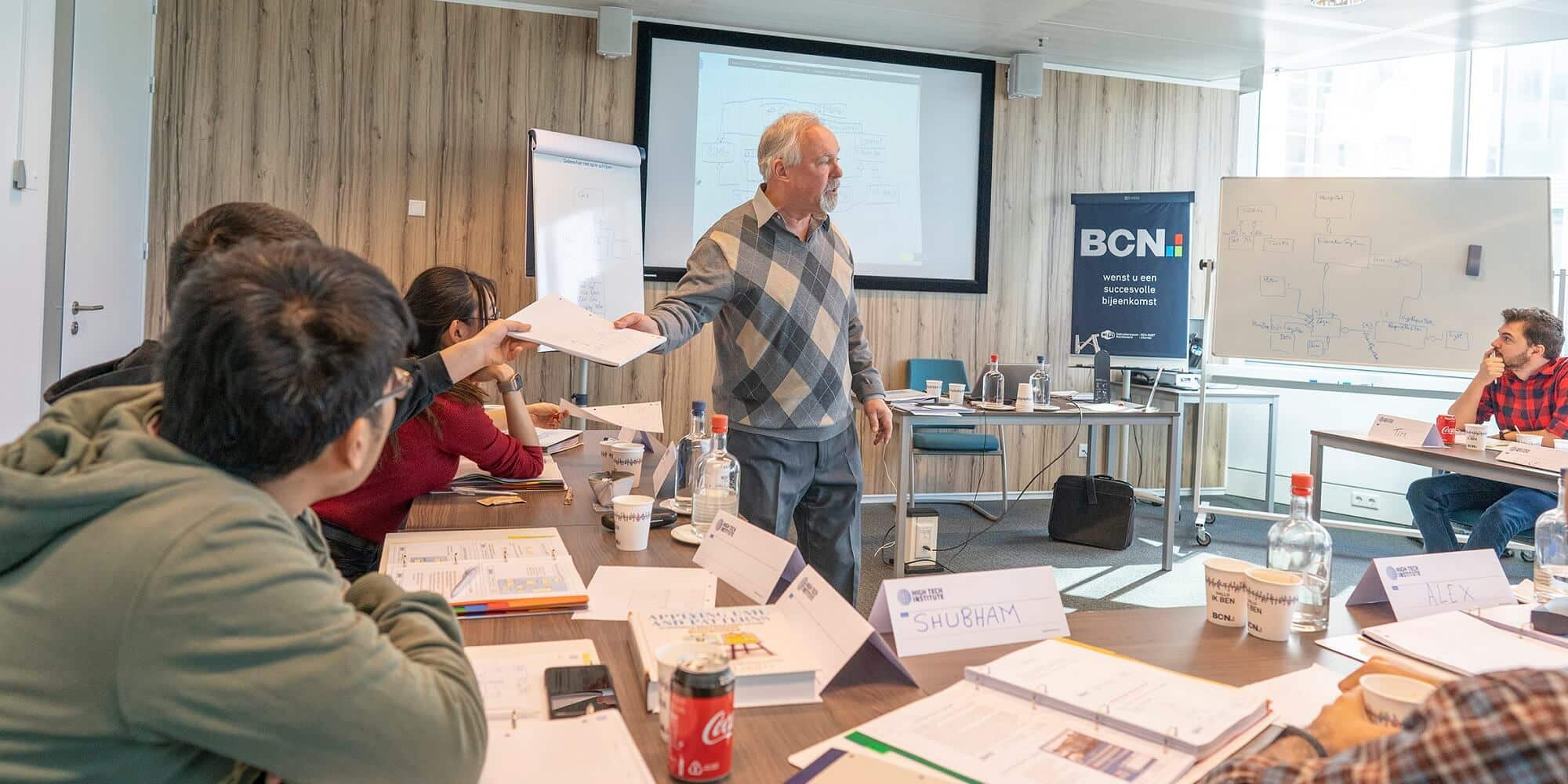Lectures, discussions, workshop. Copies of presentations, book, CD-ROM with the UML specification and the complete example of a system specified using an object-oriented approach and UML.
Trainers Dr. Onno van Roosmalen and Martijn Ceelen MSc. will both be involved as trainer duo. They complement each other during presentations and are both present at all times for intensive guidance during the assignments.
This is a comprehensive training for those who work in a software environment where object-oriented software development is applied or will be applied. In lectures the typical OO approach for requirements analysis and design and the development of a complete analysis model in UML will be explained. Several practical exercises will help in the understanding and benefits of the OO approach compared to the more traditional (functional) approach. The course also gives insight in how a detailed design can be implemented in a programming language like C++ or Java.
This training is available for in-company sessions that can be adapted to your situation and special needs.
Objective
The training event consists of three modules: an introductory module, a module with focus on object-oriented requirements analysis and a module with focus on object-oriented design and implementation. After the event the participant will:
- Understand the typical OO approach for requirements analysis and design;
- Have the ability to analyse a given problem statement and to develop a complete analysis model in UML using the OO approach, i.e.: capture the required system and software behaviour in use-case specifications, state diagrams and interaction diagrams;
- Have the ability to translate the analysis model into an architectural model in UML that takes care of all the functional and non-functional requirements;
- Have insight in how an detailed OO design can be implemented in an object-oriented programming language (C++ or Java).
Target audience
This training is intended for software developers, software engineers, project leaders and software managers who work in an environment where object-oriented software development is (going to be) applied. A basic working knowledge of an object-oriented programming language like C++ or Java is essential.
The maximum group size is 12 course participants.
Program
Lectures, exercises and a small workshop. In the OOAD introduction (2 days) the amount of practical work, mostly small exercises, is about 30% of the time. In OOAD analysis (3 days) and OOAD design (4 days) participants will work on a substantial case that takes about 40% of the total time.
The OOAD - extended version (9 days) has the same scheme as the fast track (4 days), but gives more attention to the introduction of UML, non-functional requirements, use case analysis, design by contract and SW libraries and reflection on exercise results and cases entered for discussion.
Methods
Certification
After attending, participants receive a High Tech Institute certificate.
Remarks from participants
%20optimized.jpg)




